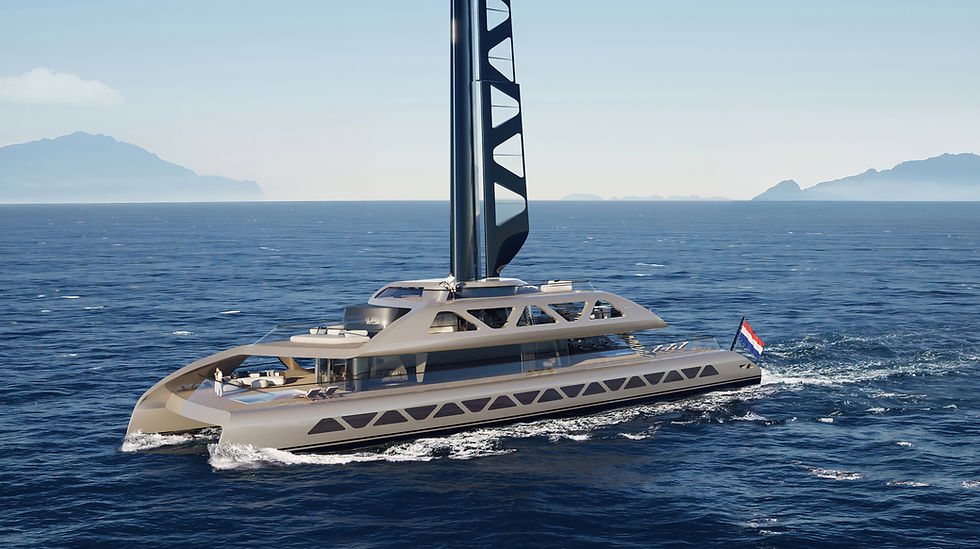Servo Yachts and Shuttleworth Design have created a plan to combat seasickness
- Boating-greece

- Dec 11, 2023
- 2 min read

California-based Servo Yachts said the new marine stabilization design being tested on Martini 7.0, a 165-foot catamaran yacht, will relieve the effects of seasickness for roughly one-third of people who are highly susceptible to motion sickness.
According to the United States National Library of Medicine, one in three people is considered highly susceptible to motion sickness. About 80 percent of the general population is susceptible if exposed to intense movement.

Servo Yachts said that Martini 7.0, designed in conjunction with UK-based design consultancy Shuttleworth Design, incorporates new stabilization techniques that allow the yacht to glide more smoothly through the ocean, avoiding the kinds of motion that typically cause passengers to become seasick. The firm says that the technology can be applied to any type of marine craft, including superyachts, day and work boats, ferries, navy transport craft, offshore transfer, and coast guard search and rescue vessels, among others.
The suspension system adjusts to feedback received in real-time based on a computer-automated electro-pneumatic mechanical system. This technology is an active method and is much more effective than current passive marine stabilisation devices which take more time to react to the motion of the sea. The system requires very little power and no warm-up time or complex vacuum systems, making it the most immediate, effective and safe option.
As well as providing total stabilisation, the system also has the unique ability to sync the motion of the suspended deck with another moving target, for example, when docking alongside a larger ship or recovering a smaller vessel at sea.
“With the Martini 7.0, I believe we have found a way to solve seasickness and significantly improve the sailing experience so that everyone can enjoy traveling on the ocean. I am very excited for Servo Yachts to continue to push the boundaries of marine technology and transform ocean travel,” said David Hall, founder of Servo Yacht.



